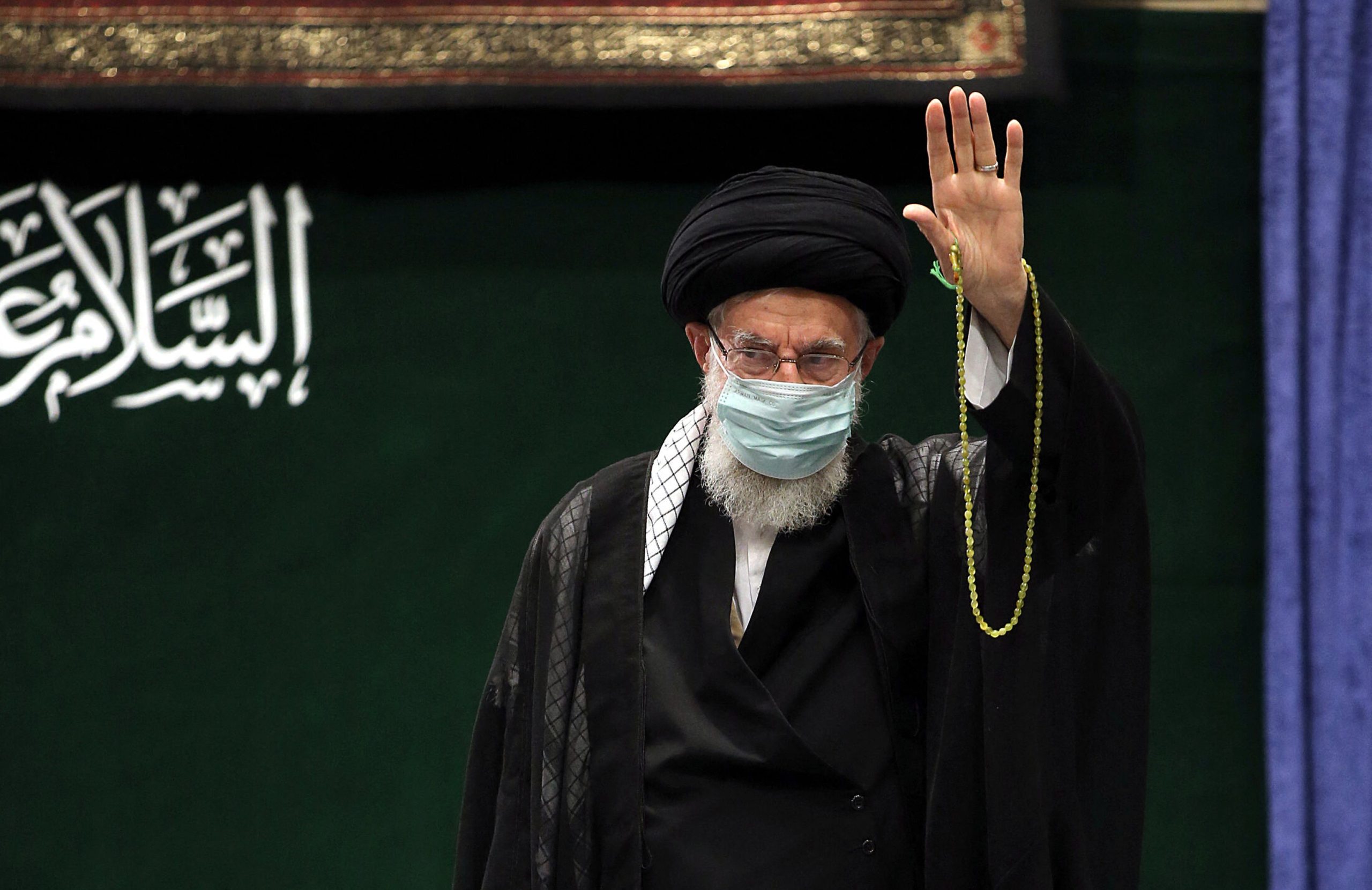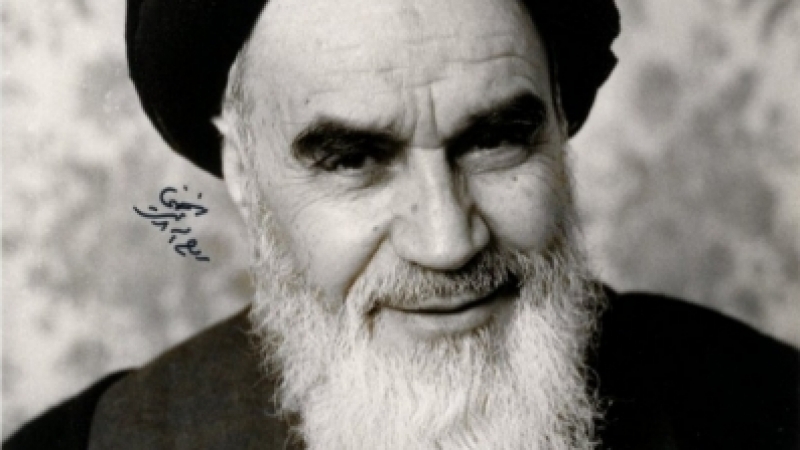Is Ayatollah Khomeini Still Living? Unpacking A Key Question About Iran's Past And Present
Detail Author:
- Name : Karli Koch III
- Username : rory.larson
- Email : bauch.rosalinda@hotmail.com
- Birthdate : 1990-12-23
- Address : 9982 Cielo Hollow Apt. 073 Collinston, MA 74901-3655
- Phone : +1-281-653-3733
- Company : Bauch, Bosco and Torphy
- Job : Cooling and Freezing Equipment Operator
- Bio : Non dicta minima sit ut aperiam rerum. Eum dolor qui eum modi voluptates omnis. Quas excepturi consequatur repudiandae eveniet. Pariatur quo recusandae in quia ratione.
Socials
facebook:
- url : https://facebook.com/rosalia2708
- username : rosalia2708
- bio : Iusto neque eligendi consequatur aspernatur.
- followers : 6281
- following : 485
tiktok:
- url : https://tiktok.com/@rosalia.marquardt
- username : rosalia.marquardt
- bio : Quam aliquid qui ipsa quis. Voluptatibus non laudantium quia eaque.
- followers : 1014
- following : 2974
linkedin:
- url : https://linkedin.com/in/rosaliamarquardt
- username : rosaliamarquardt
- bio : Eius error praesentium impedit cupiditate harum.
- followers : 3319
- following : 552
The question of whether Ayatollah Ruhollah Khomeini is still living often comes up for people interested in Iran’s recent history and its current political shape. It is a query that points to the deep influence of a figure who changed the course of a nation. For many, his name is very much tied to the very start of the Islamic Republic, and so, you know, it makes sense that people still wonder about him.
This particular question, in a way, brings to mind how a leader's impact can stretch far beyond their time on Earth. It also shows a general curiosity about the forces that have shaped modern Iran. People want to get a good sense of who was at the helm during such big shifts, and what happened after.
So, we are going to look at the facts about Ayatollah Khomeini and his place in history. We will also touch on how his legacy continues to play a part in the country today, with leaders like Ayatollah Ali Khamenei carrying on a system that, quite literally, he helped to build. It is a story, actually, that has many layers.
Table of Contents
- Who Was Ayatollah Ruhollah Khomeini?
- Personal Details and Biography of Ayatollah Ruhollah Khomeini
- The Passing of a Leader and the Succession
- The Role of an Ayatollah and Their Influence
- Ayatollah Ali Khamenei: The Current Supreme Leader
- Khomeini's Legacy and Today's Iran
- Frequently Asked Questions
Who Was Ayatollah Ruhollah Khomeini?
Ayatollah Ruhollah Khomeini was, very simply, the founder of the Islamic Republic of Iran. He led the Iranian Revolution in 1979, which saw the overthrow of the monarchy and the establishment of a new political system based on Islamic principles. His arrival on the world stage, in a way, really changed how many people looked at religion and politics working together.
He was a highly respected religious scholar, and his teachings and political thoughts had a very strong pull for many people. His ideas about Islamic governance, often called "Velayat-e Faqih," meaning "Guardianship of the Jurist," became the backbone of the new Iranian state. This concept, quite literally, gave supreme authority to a leading cleric in the country's affairs.
Before the revolution, he spent many years living outside Iran, due to his opposition to the then-ruling Shah. But, as a matter of fact, his messages still reached his followers, keeping the spirit of dissent alive. When he returned to Iran in 1979, he was greeted by millions, a truly historic moment for the nation.
Personal Details and Biography of Ayatollah Ruhollah Khomeini
For those curious about the personal side of this significant figure, here are some key details about Ayatollah Ruhollah Khomeini. This information gives a bit of a snapshot into his life and position.
| Full Name | Ruhollah Musavi Khomeini |
| Born | September 24, 1902 (or May 17, 1900, sources vary) |
| Birthplace | Khomeyn, Persia (now Iran) |
| Religious Title | Grand Ayatollah |
| Role | Founder of the Islamic Republic of Iran, First Supreme Leader of Iran |
| Died | June 3, 1989 |
| Place of Death | Tehran, Iran |
| Burial Place | Behesht-e Zahra cemetery, Tehran, Iran |
The Passing of a Leader and the Succession
The direct answer to the question "Is Ayatollah Khomeini still living?" is no. Ayatollah Ruhollah Khomeini passed away on June 3, 1989, at the age of 86. His passing was a hugely significant event for Iran, and, you know, it marked the end of an era for the country he had so deeply shaped.
His funeral was, quite literally, one of the largest in history, drawing millions of mourners to Tehran. This public display of grief showed the immense personal devotion many Iranians felt for him. It was a very powerful moment, really, for the nation.
Following his death, a process was set in motion to choose his successor as the Supreme Leader. This was a critical time for the young Islamic Republic, as the choice would determine the future direction of the country. The Assembly of Experts, a body of high-ranking clerics, was tasked with this important decision. They needed to find someone who could, in a way, carry on the revolutionary ideals and lead the nation.
The chosen successor was Ayatollah Ali Khamenei. He had been a close associate of Khomeini and held significant positions within the new government. His selection marked a new chapter for Iran, but one that, as a matter of fact, was still very much tied to the principles established by Khomeini.
The Role of an Ayatollah and Their Influence
To really get a sense of Ayatollah Khomeini's importance, it helps to understand what the title "Ayatollah" means within Shia Islam. An Ayatollah, which means "Sign of God," is a very high-ranking cleric in the Shia religious structure. They have reached a level of deep learning and wisdom in Islamic studies, and, you know, they are seen as spiritual guides.
A "Grand Ayatollah" is even more senior, often seen as a spiritual guide and mentor to millions of Shia Muslims. Their influence, quite literally, extends beyond the mosque and into the social and political arenas. People look to them for guidance on religious matters, and also on everyday life.
An Ayatollah's decisions, known as a fatwa, have authority for those who examine and agree with them—in theory. In practice, Ayatollahs gain personal followings, among whom their pronouncements hold considerable weight. This personal following is, basically, a huge part of their power and how they can guide people.
The title's origins and significance are explored in discussions about Iran's Shia clergy, highlighting their influence in religious and political life. This tradition of scholarly leadership has, in a way, been a key part of Iranian society for a long time. It is a system that, really, has deep roots.
Ayatollah Ali Khamenei: The Current Supreme Leader
Since Ayatollah Khomeini's passing, Ayatollah Ali Khamenei has been the key figure in Iranian political life for more than 40 years. He has served as the country’s political and religious figurehead since 1989. This makes him, quite literally, one of the longest-serving leaders in the world.
The cleric has ruled for more than three decades, spearheading a policy of backing proxy groups to wield influence across the region. This approach, you know, has been a central part of Iran's foreign policy under his watch. He has, in a way, worked to extend Iran's reach through various means.
Ayatollah Ali Khamenei, who crushed internal threats repeatedly during his time in power, now faces his greatest challenge yet. He has, for nearly four decades, navigated internal dissent, economic crises, and war. But the unprecedented strikes by Israel, and the responses to them, mark his most serious crisis yet, threatening both the country and his rule.
Iran's leader, Ayatollah Ali Khamenei, has been in the spotlight, especially during times of regional tension. For instance, Iran's supreme leader agreed to a ceasefire with Israel and avoided a big response to recent events. This shows, arguably, his pragmatic side when it comes to managing difficult situations. You can learn more about Ayatollah Ali Khamenei on our site, and also read about his history on this page .
Khomeini's Legacy and Today's Iran
Even though Ayatollah Khomeini is no longer living, his vision and principles still deeply affect Iran today. The system of government he put in place, with a Supreme Leader as the ultimate authority, remains. His ideas, quite literally, form the basis of the country's laws and its general direction.
The current Supreme Leader, Ayatollah Ali Khamenei, has continued many of the policies and directions set by Khomeini. This includes the emphasis on Islamic values in public life and the stance against certain outside influences. It is, basically, a continuation of the path that was set many years ago.
The role of a Grand Ayatollah, as a spiritual guide with widespread influence, continues to be a very important part of Iranian society. This tradition, as a matter of fact, ensures that religious figures hold a significant place in both the spiritual and political discussions of the country. The legacy of Khomeini, in a way, truly lives on through these structures and figures.
People still discuss his thoughts and actions, and his image remains a powerful symbol in Iran. His historical impact is, truly, something that cannot be overlooked when trying to understand the country. The very fabric of Iran, you know, has his imprint on it.
Frequently Asked Questions
When did Ayatollah Khomeini pass away?
Ayatollah Ruhollah Khomeini, the founder of the Islamic Republic of Iran, passed away on June 3, 1989. His passing marked a very significant moment in Iran's history, leading to a period of transition for the nation. This date, really, is a key point for anyone looking at modern Iran's timeline.
Who became Supreme Leader after Ayatollah Khomeini?
After Ayatollah Ruhollah Khomeini passed, Ayatollah Ali Khamenei was chosen as his successor to the position of Supreme Leader. He has, quite literally, held this very powerful position since 1989. His leadership has, in a way, shaped Iran for over three decades.
What does the title "Ayatollah" mean?
The title "Ayatollah" means "Sign of God" in Arabic. It is a very high-ranking religious title given to senior Shia clerics who have achieved a deep level of scholarship in Islamic studies. They are, basically, seen as very important spiritual guides and teachers within the Shia Muslim community. You know, they have a lot of influence on people's lives and beliefs.


